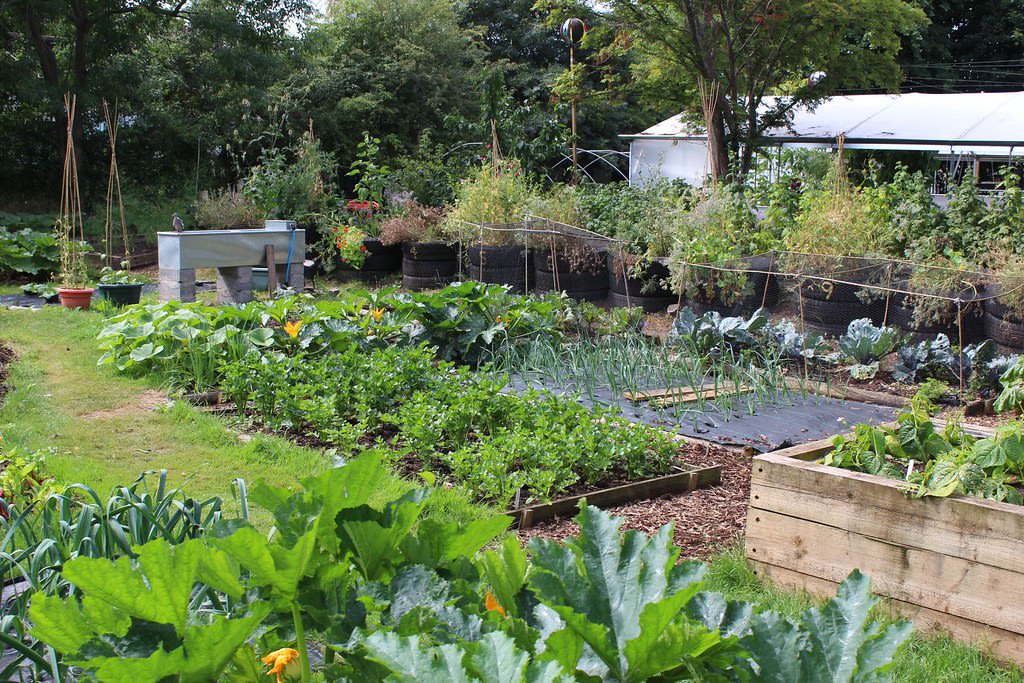The Guiding Principals of Organic Gardening
Organic Garden

Introduction
Organic gardening is a way of growing plants without the use of synthetic chemicals or genetically modified organisms (GMOs). Instead, it relies on natural methods to improve soil health, control pests and diseases, and promote the health of plants and the ecosystem as a whole. The following are the guiding principles of organic gardening.
1. Soil Health
Organic gardening emphasizes the importance of building and maintaining healthy soil. This includes adding organic matter such as compost, leaf mold, or well-rotted manure to the soil to improve its structure and fertility. Organic gardeners also avoid using synthetic fertilizers, which can harm beneficial microbes and lead to soil depletion over time. Instead, they use natural fertilizers like bone meal, blood meal, and fish emulsion, or plant-based fertilizers such as alfalfa meal or soybean meal.
2. Biodiversity
Organic gardening seeks to promote biodiversity by planting a variety of crops and avoiding monoculture. This can help to attract beneficial insects and wildlife, which can help to control pests and pollinate crops. Companion planting, where different crops are grown together for mutual benefit, is also a key practice in organic gardening. For example, planting herbs like basil or marigolds alongside vegetables can help to deter pests and improve soil health.
3. Water Conservation
Organic gardening practices emphasize the importance of conserving water. This includes using techniques such as mulching, which helps to retain soil moisture, and planting crops that are well-suited to the local climate and soil conditions. Additionally, organic gardeners may collect rainwater or use drip irrigation systems to minimize water waste.
- Mulching: Mulching is the process of adding a layer of organic material, such as leaves, straw, or grass clippings, to the soil surface around plants. This layer helps to retain soil moisture by reducing water loss through evaporation. Additionally, mulch helps to suppress weeds, regulate soil temperature, and improve soil fertility as it breaks down.
- Plant selection: Organic gardeners choose plants that are adapted to the local climate and soil conditions. Native plants are often the best choice as they are well-suited to the local environment and require less water than non-native plants. Additionally, planting drought-tolerant species or those with deep root systems can help to reduce water use in the garden.
- Rainwater harvesting: Rainwater harvesting is the practice of collecting and storing rainwater for later use in the garden. This can be done by installing rain barrels or cisterns to collect water from rooftops, or by creating swales and rain gardens to capture and infiltrate rainwater into the soil.
- Drip irrigation: Drip irrigation systems deliver water directly to the roots of plants, reducing water loss through evaporation and minimizing water waste. These systems can be customized to meet the needs of different plants and are an effective way to conserve water in the garden.
- Watering practices: Organic gardeners aim to water plants deeply and infrequently, rather than using frequent shallow watering. This encourages plants to develop deep root systems, which can access water from deeper in the soil. Additionally, watering in the early morning or evening when temperatures are cooler can help to reduce water loss through evaporation.
- Soil health: Improving soil health through the addition of organic matter and compost can help to retain water in the soil by improving its structure and water-holding capacity. Soil that is rich in organic matter can hold up to 20 times its weight in water, reducing the need for frequent watering.
By incorporating these water conservation techniques, organic gardeners can reduce water use in the garden, promote healthy plant growth, and conserve this valuable natural resource.
4. Pest and Disease Management
Organic gardening focuses on preventing pest and disease problems before they occur, rather than relying on synthetic chemicals to control them. This may involve techniques such as crop rotation, which can help to prevent soil-borne diseases, and companion planting, which can help to deter pests. Physical barriers, such as row covers or netting, can also be used to protect crops from pests. Organic gardeners may also use natural pest control methods, such as insecticidal soap, neem oil, or diatomaceous earth, to control pests.
5. Non-toxic Methods
Organic gardening avoids the use of toxic chemicals, which can harm beneficial insects and wildlife, as well as the environment. Instead, organic gardeners rely on non-toxic methods to control pests and diseases, such as biological control, which involves introducing natural predators or parasites to control pests. Hand-picking or pruning affected plant parts can also be an effective way to control pests and diseases.
6. Continuous Improvement
Organic gardening is a continual learning process, and organic gardeners are always seeking to improve their practices. This may involve experimenting with new techniques, such as no-till gardening or using cover crops to improve soil health. It may also involve ongoing observation and monitoring of the garden ecosystem to identify areas for improvement.
Overall, organic gardening is a way of working with nature to promote healthy soil, plants, and ecosystem. By following these guiding principles, organic gardeners can create a sustainable and productive garden that benefits both the environment and the gardener.
About the Creator
Love The Green
Welcome to my page,I hope to share my experiences, insights, and knowledge with fellow nature enthusiasts.Together, we can celebrate the wonders of the natural world, and work to protect and preserve it for future generations to enjoy🌿🌲






Comments
There are no comments for this story
Be the first to respond and start the conversation.